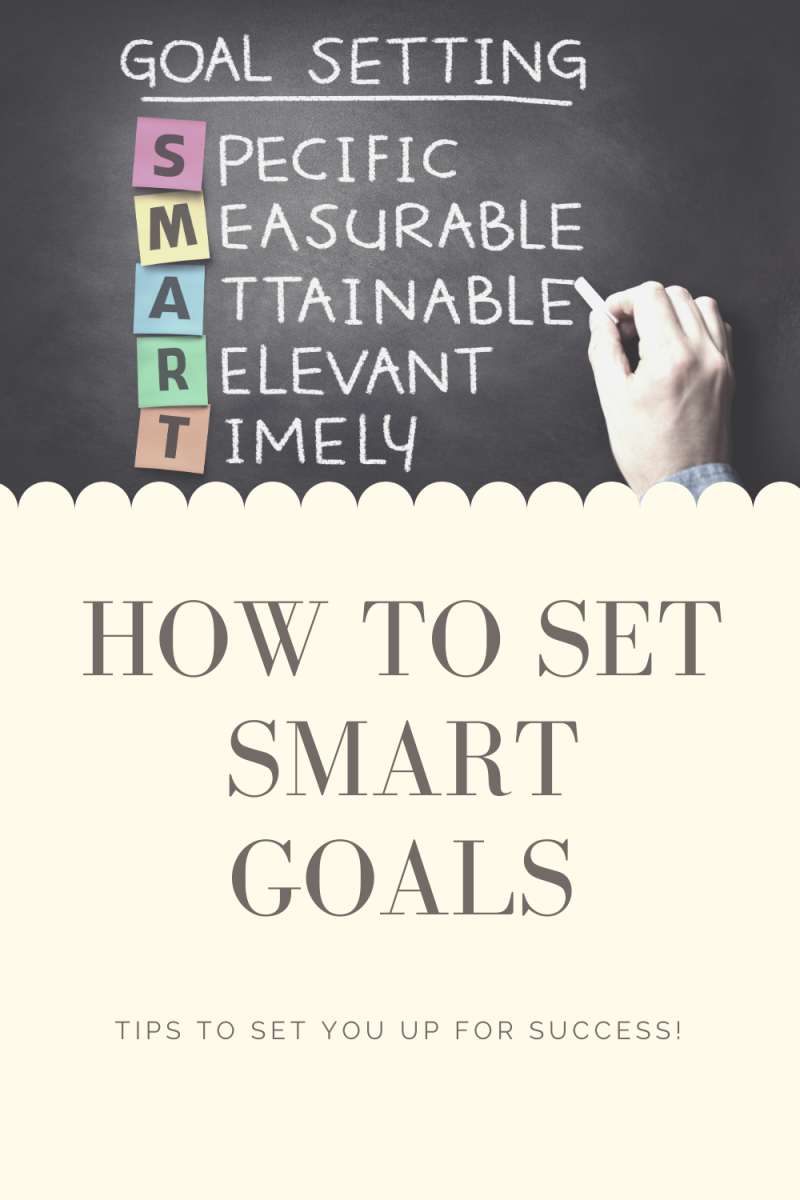PRACTICAL GUIDE TO PERSONAL GOAL SETTING
INTRODUCTION
Goal
setting is a powerful process for personal planning.
The process of setting goals helps you choose where you want to go in life. By knowing precisely what you want to achieve, you know where you have to concentrate your efforts. You will also quickly spot the distractions that would otherwise lure you from your course.
More than this, properly set goals can be incredibly motivating, and as you get into the habit of setting and achieving goals, you will find that your self-confidence builds fast.
What Is A Goal?
According to the OXFORD DICTIONARY:
1. A goal is an object of effort or destination.
2. A goal is a predetermined destination.
3. A goal is a statement of what you want to achieve in life.
The Range Of Goals
Goals are set on a number of different levels: First you decide what you want to do with your life and what large-scale goals you want to achieve. Second, you break these down into the smaller and smaller targets that you must hit so that you reach your lifetime goals. Finally, once you have your plan, you start working to achieve it.
Life-Time Goals – all your life
Long-Range goals – Should be 5-10years or more.
Medium-Range goals – Should be at least 1-5 years
Short - Range goals – Should be at least 1 Month to 1year.
LONG RANGE GOALS
Example:
1. To obtain a Bachelors degree, Teachers’ Diploma, Polytechnic HND etc. within the next 10 years.
MEDIUM RANGE GOALS
Example:
1. To pass my BECE and gain admission to SHS in the next 4 years.
SHORT RANGE GOALS
Example:
1. To read one story book every month.
2. I want to be able to real the whole of the New Testament by reading one chapter of the NT everyday
Starting to Set Personal Goals
This section explains a simple technique for setting personal goals. It starts with your lifetime goals, and then works through a series of lower level plans culminating in a daily to-do list. By setting up this structure of plans, you can break even the biggest life-long goal down into a number of small tasks that you need to do each day to reach the lifetime goals.
The first step in setting personal goals is to consider what you want to achieve in your lifetime, as setting lifetime goals gives you the overall perspective that shapes all other aspects of your decision-making.
To give a broad, balanced coverage of all-important areas in your life, try to set goals in some of these categories (or in categories of your own, where these are important to you):
Spiritual Goals: What level of spirituality do you want to attain in your life and at what time?
Career Goals: What level do you want to reach in your career?
Educational Goals: Is there any knowledge you want to acquire in particular? What information and skills will you need to achieve other goals?
Family Goals: Do you want to be a parent? If so, how are you going to be a good parent? How do you want to be seen by a partner or by members of your extended family?
Financial Goals: How much do you want to earn by what stage and at what age?
Starting to Achieve Your Lifetime Goals
Once you have set your lifetime goals, set a Long-term plan of smaller goals that you should complete if you are to reach your lifetime plan. Then set a Medium-term plan and Short-term plan of progressively smaller goals that you should reach to achieve your lifetime goals. Each of these should be based on the previous plan.
Then create a daily to-do list
of things that you should do today to work towards your lifetime goals. At an
early stage, these goals may be to read books and gather information on the
achievement of your goals. This will help you to improve the quality and
realism of your goal setting.
Finally review your plans, and make sure that they fit the way in which you
want to live your life.
SMART Goals:
A useful way of making goals
more powerful is to use the SMART mnemonic. While there are plenty of variants,
SMART usually stands for:
S – Specific
M – Measurable
A – Attainable
R – Relevant
T – Time-bound
1. Goals Should Be SPECIFIC
Goals should be specific in terms of Time,
Finances, Materials, People, Talent, Target, Quantity, Quality, Objective, and
Satisfaction.
VAGUE GOALS
I want to be successful
I want to have a secure future.
I want to have plenty money in life.
I will get married when I am fully prepared.
SPECIFIC GOALS
I want to earn a Bachelor of Science degree in Human Resource Management in 4 years
from today.
I will invest 15% of my monthly income towards my retirement.
I want to be worth GH ¢ 500 000.00 by the time I am 45 years of age.
I will marry at the age of 28yrs, when I am working and have my own apartment.
2. Goals Should Be MEASURABLE
IMMEASURABLE GOALS
I want to evangelize the whole world.
I want to be healthy
I want to do well in my semester exams.
I want to be a wide reader.
MEASURABLE GOALS
I will visit 5 homes each week and share the gospel with them.
I will exercise for ½ an hour each morning and maintain my weight at 65Kg. by
eating balanced diet.
I want to score a minimum of 75% (i.e. a B+) in all my courses this semester
I will read a book on self-development and motivation every month.
3. Goals Should Be ATTAINABLE
To set attainable goals use the SWOT analysis STRENGTH, WEAKNESSES,
OPPORTUNITIES & THREATS.
UNATTAINABLE GOALS
I want to learn how to play the Keyboard and perform on television in one week.
I want to be the next president of the United States of America
ATTAINABLE GOALS
I want to learn how to play the Keyboard and be able to perform on TV in 3
years.
I aspire to run for presidency in Ghana at age 45.
4. Goals Should Be REALISTIC
Unrealistic goals are like building castles in the air. They are nothing but
wishes and since they are not horses beggars cannot ride. They sound big but in
reality, they can never be achieved.
UNREALISTIC GOAL
Ghana to become a first world nation in 5 years.
I want to become the next Chief Justice after completing my Jenior High School.
I want to move Africa and place it near the United States of America.
REALISTIC GOAL
Ghana to be a middle income country by 2020.
I want to train as a lawyer after my first degree.
I want to live and work in the United States sometime in my lifetime.
5. Goals Should Be TIME-BOUND
Goals must have a time element attached to them so that one can be bound to
fulfil them within that specified period. When goals are time bound, it also
enables the person embarking on the goals to make periodic evaluation based on
the dead lines in order to stay on track.
NON TIME-BOUND GOAL
I want to get married soon
I want to finish all my schooling before it is too late
TIME-BOUND GOAL
I want to marry at age 26
I will finish all my schooling before I turn 30 years.
Achieving Goals
When you have achieved a goal, take the time to enjoy the satisfaction of
having done so. Absorb the implications of the goal achievement, and observe
the progress you have made towards other goals. If the goal was a significant
one, reward yourself appropriately.
With the experience of having achieved this goal, review the rest of your goal
plans:
1. If you achieved the goal too easily, make your next goals harder
2. If the goal took a dispiriting length of time to achieve, make the next
goals a little easier
3. If you learned something that would lead you to change other goals, do so
4. If while achieving the goal you noticed a deficit in your skills, decide
whether to set goals to fix this.
5. Failure to meet goals does not matter as long as you learn from it.
Feed lessons learned back into your goal-setting program.
Remember too that your goals will change as you mature. Adjust them regularly
to reflect this growth in your personality. If goals do not hold any attraction
any longer, then let them go. Goal setting is your servant, not your master. It
should bring you real pleasure, satisfaction and a sense of achievement.
The best example of goal setting that you can have is to try setting your own
goals. Set aside two hours to think through your lifetime goals in each of the
categories. Then work back through the 25-year plan, 5-year plan, 1-year plan,
6-month plan, and 1-month plan. Finally draw up a To Do List of jobs to do
tomorrow to move towards your goals.
Come tomorrow, do those jobs, and start to use goal setting routinely!
Key points:
Goal setting is an important method of:
1. Deciding what is important for you to achieve in your life
2. Separating what is important from what is irrelevant
3. Motivating yourself to achievement
4. Building your self-confidence based on measured achievement of goals
5. When you achieve goals, allow yourself to enjoy this achievement of goals
and reward yourself appropriately. Draw lessons where appropriate, and feed
these back into future performance.
Motivational Quotes on
Goal Setting and Achieving
1. "Obstacles are those frightful things you see when you take your eyes
off your goal."
Henry Ford
2. "Heaven on Earth is a choice you must make, not a place we must
find."
Dr. Wayne Dyer
3. "Always bear in mind that your own resolution to succeed is more
important than any other one thing."
Abraham Lincoln
10. "The only limit to our realization of tomorrow will be our doubts of
today."
Franklin D. Roosevelt
11. "It's never too late to be what you might have been."
George Eliot
12. "No one can cheat you out of ultimate success but yourself."
Ralph Waldo Emerson
13. "More men fail through lack of purpose than lack of talent."
Billy Sunday









